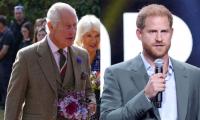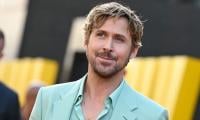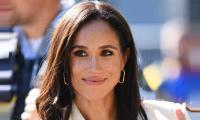LAHORE: After having rejected the idea of building of a new international airport at Makkah on June 22, 2011, Saudi Arabia's General Authority for Civil Aviation has finally announced to build a massive landing and flying facility in this holy city for the airplanes carrying the Haj and Umrah pilgrims, meaning thereby that Crown Prince, Mohammed bin Salman, is resiliently embarking upon his programme to modernise some aspects of the Saudi society within the next decade.
Here follow some other key steps that Saudi authorities have initiated in recent times to open up what still remains a conservative society in many ways:
On Monday (July 8), Saudi Arabia’s new ambassador to the United States, Princess Reema bint Bandar, had met American President Donald Trump to present her credentials.
Princess Reema, the kingdom’s first female ambassador, had taken her oath before King Salman in Riyadh during April 2019 before starting in the position last month.
Princess Reema had replaced Prince Khalid bin Salman, the younger brother of Muhammad Bin Salman, the powerful Saudi Crown Prince.
Remember, the bilateral ties between the United States and Saudi Arabia were strained since October 2, 2018, when a Saudi journalist Jamal Khashoggi was murdered inside the Saudi consulate in Istanbul.
On June 5, 2018, Saudi Arabia had issued driving licences to women for the first time in over 50 years.
Some 10 women, according to the "BBC News," had swapped their foreign licences for Saudi ones in cities across the country. The ban on Saudi female drivers was lifted on June 24 last year, following an announcement during September 2017 in this context.
Prominent Australian newspaper "Sydney Morning Herald" had stated: "Saudi Arabia is the only country in the world that does not currently permit women to drive, a policy that has been a source of international condemnation for years. Although there is no law barring women from driving, no licences have been issued to them in more than 50 years, forcing women to rely on private chauffeurs and taxis or male relatives with vehicles. But unfortunately this comes at a price where the very women who campaigned for the right to drive are behind bars instead of behind the wheel."
On April 18, 2018, Saudi Arabia had opened its first movie theatre after 35 years, much to the delight of its population.
Within one year, or by April 19, 2019, the magic of the movies is now seen casting a spell over the Kingdom, where the buzz of the big screen had been a dim and distant memory.
The "Arab News" had written: "Superhero fantasies, comedies and action dramas have proved most popular with audiences, who have flocked to a mix of global box-office hits and regional films. VOX Cinemas — Saudi Arabia’s biggest movie operator, with plans to invest SR2billion ($533 million) to open 600 screens by 2023 — said it released 114 films across the Kingdom in the past year. The biggest money spinner was Marvel superhero movie "Captain Marvel," which broke through the billion-dollar global box-office barrier this month — followed by "Cold Pursuit," an American black-comedy action film."
Messrs VOX now has 39 screens and plans to open a further 110 by the end of the year across Saudi Arabia.
Meanwhile, the Majid Al-Futtaim Group has built five locations with a total of 47 screens, and is planning to open at least another 70 screens this year, on track to reaching our goal of 600 screens in Saudi Arabia by 2023.
Moreover, Saudi women are now allowed into three stadiums in major cities.
The General Sport Authority, the country’s governing body for sports, had said in October 2017 that stadiums would begin accommodating families. Saudi men and women are customarily separated in public places, but that restriction is also slowly being relaxed.
On September 28, 2018, the city of Jeddah had hosted the World Boxing Super Series super-middleweight final at the Al-Jawhara Stadium (King Abdullah Sports City).
In September 2018, Saudi Arabia had announced it would open up its borders to fans of live sport, music and culture for the first time with the launch of a new online visa process dedicated to welcoming international tourists.
It is pertinent to note that about six months ago, King Salman had announced a Saudi Riyal 1.106 trillion budget, the Kingdom’s largest ever, and had pledged that his government would move ahead with economic reforms. The Saudi Riyals 1.106 trillion budget was 7.3 percent more than the 2018 spending figure of Saudi Riyals 1.030 trillion. It was in 2017 that Saudi Arabia had passed a new counterterrorism law that included definitions of specific acts of terrorism and their corresponding sentencing guidelines. It included criminal penalties of 5 to 10 years in prison for portraying the king or crown prince, directly or indirectly, "in a manner that brings religion or justice into disrepute," and criminalized a wide range of peaceful acts that bear no relation to terrorism.
On January 31, 2019, Saudi Arabia had ended an anti-corruption drive launched in November 2017 that saw senior princes, ministers and prominent businessmen rounded up.
The "BBC News" had reported: "The Royal Court said a committee led by Crown Prince Mohammed bin Salman had recovered $107 billion in settlements including property, companies and cash. A total of 381 individuals were summoned by the commission. Eighty-seven (87) agreed to settle, eight refuse and 56 were denied settlements because of already existing charges.
With a total worth of US$34.4 trillion, Saudi Arabia today has the second most valuable natural resources in the world. Its Nominal GDP currently rests at $740.123 billion and Nominal GDOP Per Capita stands at $25,450. The Kingdom exports goods worth $231.3 billion, while its imports are valued at $136.8 billion. The proven Saudi oil reserves, according to figures provided by the Saudi government, are estimated to be 260 billion barrels, which is about one-quarter of world oil reserves. However, Venezuela tops the list of countries naturally gifted with oil.
hief Minister Ali Amin Gandapur on Friday de-notified his special assistant on science and technology and information...
Dr. Muhammad Fakhare Alam Irfan, a BS-22 officer of Pakistan Administrative Service , awaiting posting, has been...
Data of Chinese nationals in Islamabad has been initially compiled to take special security measures, along with the...
SC will take up next week important cases, including the appeal of the Sunni Ittehad Council against the decision of...
President Zardari approved issuance of retirement notification of Justice Shaukat Aziz Siddiqui on attaining the age...
President Asif Ali Zardari speaks during an interview in this still on January 29, 2024. — Facebook/Pakistan Peoples...







